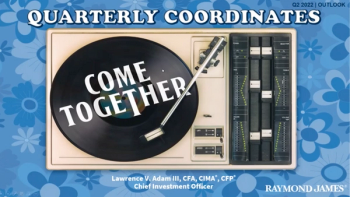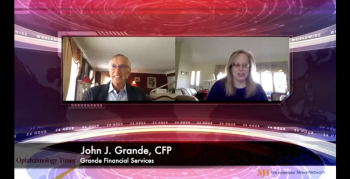
On the 'Negotiations' episode of RWO: The Podcast, Dr. Lisa Nijm joins Drs. Nicole Bajic and Grayson Armstrong to discuss personal experiences with contract negotiation.

On the 'Negotiations' episode of RWO: The Podcast, Dr. Lisa Nijm joins Drs. Nicole Bajic and Grayson Armstrong to discuss personal experiences with contract negotiation.

Financial experts point out that what you don’t know you don’t know can hinder you.

A powerful conversation about expectations can open communication and trust.

There are strategies you can implement to protect part of your portfolio against downside moves. This is like having a sword in one hand and a shield in the other.

One of the most stressful aspects of retirement can be transitioning from earning income to relying upon investments and other possible income sources to meet income needs.

Here's an overview of what the current world economic issues mean for today's investors.

Goal-based retirement planning is different from longevity planning.

John J. Grande, CFP, and John S. Grande, CFP, discuss why ophthalmologists should be focusing on having a financial plan ahead of a second wave in the ongoing pandemic.









For physicians with 15 or 20 years left to work before retirement, the planning is easy–as time is on their side. Adjustments can be made regarding savings rates, age of retirement, and future cash flow needs. When retirement is imminent within three years, the planning options are limited, and physicians must become realistic about what is mathematically feasible as far as generating sustainable cash flow to support their lifestyle. Here are some issues for physicians who are facing retirement within three years or less.

One of the frequently asked questions in the financial planning discussion is: “How can I protect myself against the possibility of long-term health care expenses?” This subject is a concern for most Americans. A recent survey of over 10,000 affluent investors, conducted by Spectrem Group and Vanguard Financial, found that long-term care was the top concern among individuals with $5 million to $25 million in assets.

After working with ophthalmologists across the country for over 20 years, Grande Financial Services have heard firsthand from hundreds of ophthalmologists about what stresses them out and what detracts from their happiness. We have outlined here five reasons why physicians deprive themselves of more happiness.


When considering retirement, today's physicians need to outline their current financial situation; list and prioritize goals; and have a plan prepared that will show if their objectives are based in financial reality.

Should I pay off debt or invest money? Learn More

Ophthalmology Times and the Grande Financial Services Inc. are pleased to announce an addition to its collaboration. Together, we are launching this Money Matters financial educational landing page. In this video, learn about Grande Financial Services and what this page hopes to provide physicians.

This is a question we often get from doctors. It is an interesting question, because there are a couple of opinions about what the right thing to do is. There is never a cookie-cutter answer.

If investors are not in the market when it begins to move up again, they may miss a large gain. It is virtually impossible to accurately enter at the top or bottom of the market, especially consistently.

A financial question that surfaces frequently, usually from physicians ages 55 years and older, is: “When and how should my spouse and I take our Social Security benefits?” These types of questions recently got complicated with the recent passage of new legislation by the U.S. Congress.

Ophthalmology Times and the Grande Financial Services Inc. are pleased to announce an addition to its continued collaboration. Together, we are launching this Money Matters Resource Center. This project is included as part of the Practice Management section of the publication.

If you own a small business (such as a medical practice), many retirement plan alternatives are available to assist you and your eligible employees with retirement planning. To make an informed decision on which plan is right for your practice, review the differences carefully before choosing.

What are the odds that you will enjoy this same level of good health when you are at the age of 80, 90, or even 100? Especially since about 70% of people over the age of 65 will require long-term care at some point.